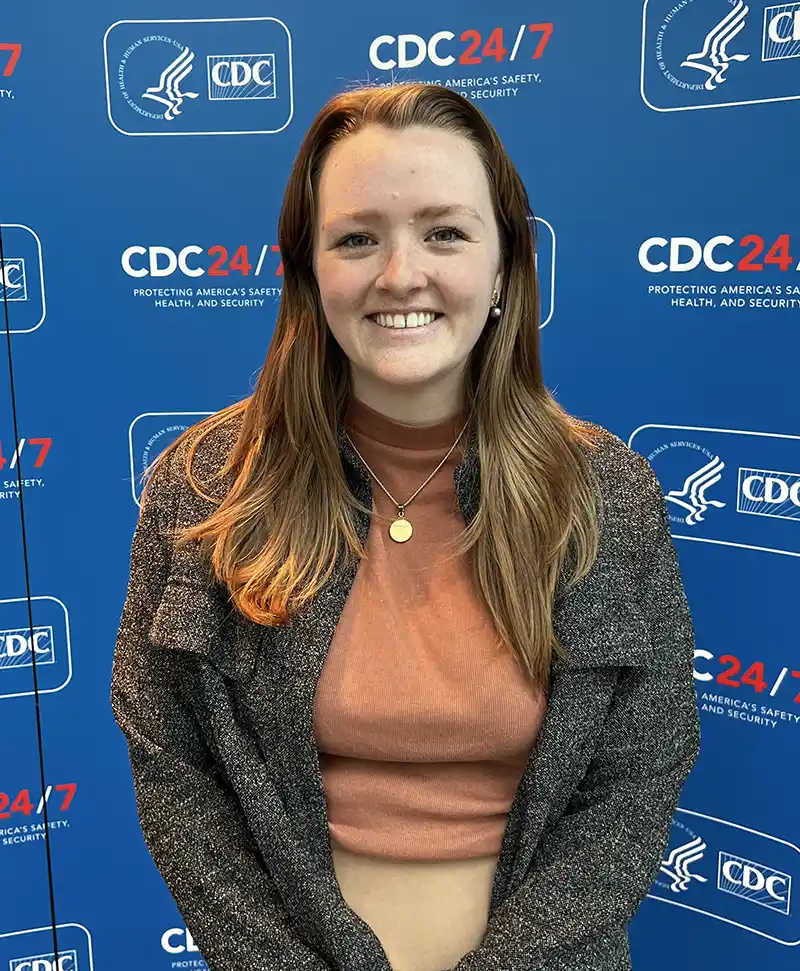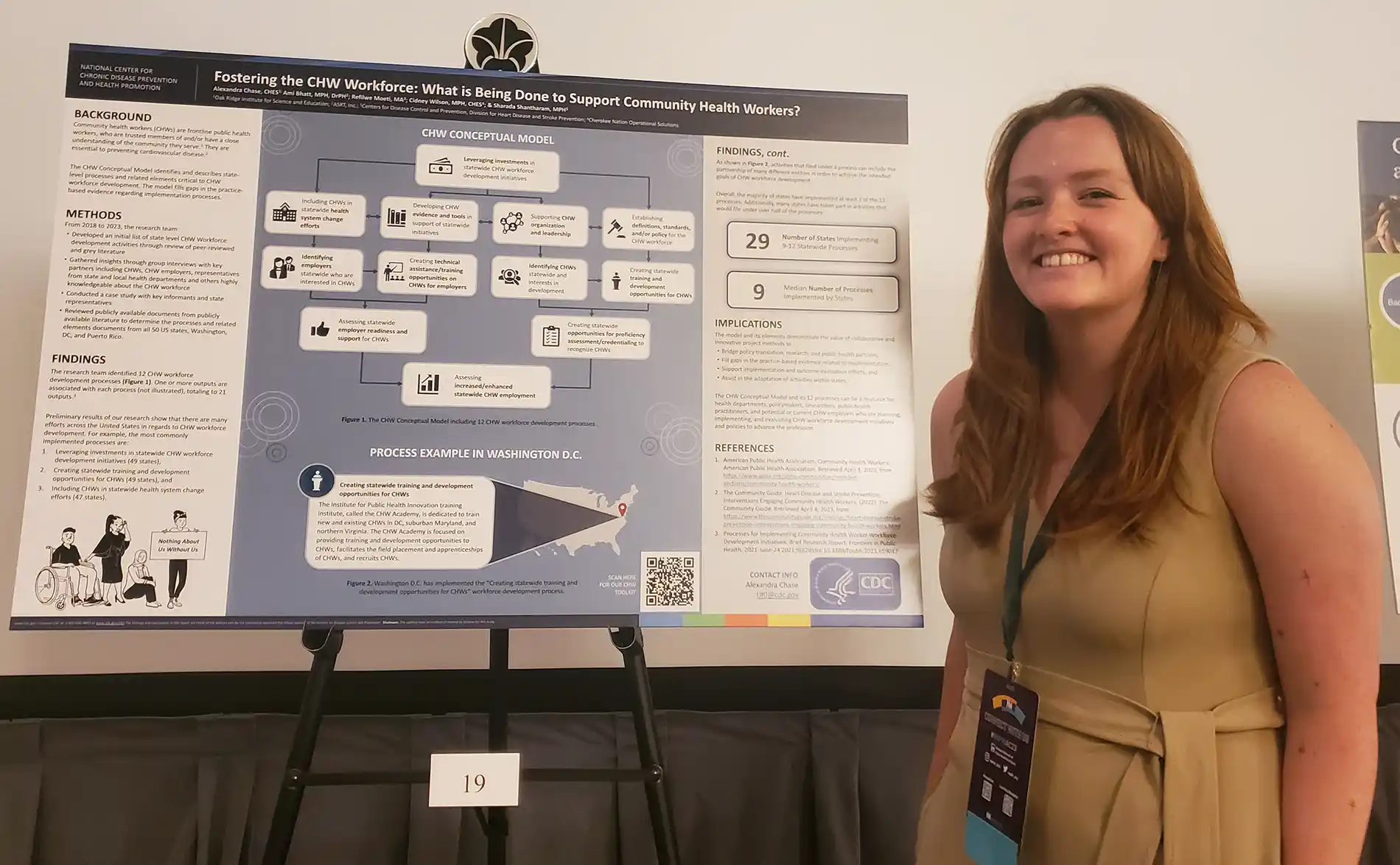CDC fellow researches community health worker workforce development
Meet Alexandra “Ally” Chase
Though biology was Alexandra “Ally” Chase’s introduction to science, technology, engineering and mathematics (STEM), she found herself gravitating toward public health because of a college course called Health and Wellness. As an undergraduate student, Chase was a long-term care ombudsman, where she learned about the experiences of long-term care facility residents and advocating for their rights. Additionally, she was a research assistant.

Alexandra “Ally” Chase is an applied research and translations fellow for the Centers for Disease Control and Prevention (CDC) and assisting with a model to highlight activities to support the community health workers (CHW) workforce. (Photo Credit: Ally Chase)
“Both of these experiences fueled my yearning for more knowledge, from the background details of study methods and collection to the big-ticket policies that determine how people are treated in healthcare,” said Chase.
After graduating from the University of Georgia with her bachelor’s degree in health promotion and behavior and a minor in health policy and management, Chase became an AmeriCorps Volunteers in Service to America (VISTA) member as an educational specialist for a maternal and infant health organization in Georgia. While most of her experience occurred virtually, Chase served and advocated for disadvantaged communities during the uncertainty of the COVID-19 pandemic.
Chase’s passion for research was revived when she discovered the opportunity to apply for an Oak Ridge Institute for Science and Education (ORISE) fellowship. She was selected and joined her mentors Erika Fulmer and Sharada Shantharam as a Center’s for Disease Control and Prevention (CDC) Applied Research and Translation fellow, in the Division for Heart Disease and Stroke Prevention’s (DHDSP) Applied Research and Translation Team.
The CDC Research Participation Programs are educational and training programs designed to provide students, recent graduates and university faculty opportunities to participate in project-specific CDC research, current public health research and developmental activities.
As a fellow, one of Chase’s main research projects is assisting with a conceptual model to advance community health worker (CHW) workforce development across all 50 states, Washington, D.C. and Puerto Rico. Her role includes reviewing unfinished documentation on CHW state narratives and gathering data from grey literature, websites, state and local health departments, universities and other sources. The model is yet to be published, but Chase hopes it will be a helpful resource to many a broad range of audiences.
“CHWs are trusted members with vast understanding of their communities,” explained Chase. “When published, it will serve as a tool to describe state-wide efforts in CHW workforce development and to foster the building of more equitable communities where CHWs are well-supported and able to achieve the greatest possible impacts.”

Chase presented on behalf of her project team at the National Network for Public Health Institute’s annual conference with her poster titled “Fostering the CHW Workforce: What is Being Done to Support Community Health Workers?” This was her first time presenting at a conference, and she was excited to discover that attendees were well-engaged with the research.
“We held great conversations, addressed specific questions, networked to better inform our data and spread awareness about CHWs and our research to support the workforce,” said Chase about the conference.
Additionally, Chase acts as the team’s communications liaison and served on the DHDSP’s Action Team to Address Systemic Racism for almost a year, helping to assure that anti-racism, diversity, equity, inclusion, accessibility and belonging principles are at the center of all branch priorities and activities.
When asked if she recommended CDC’s fellowship Chase said, “Yes. My program has been supportive since the first interview. My team makes this opportunity the most rewarding experience. I can say without a doubt that my team is a key reason why I have enjoyed my fellowship and have been able to take advantage of all these great opportunities.”
Once her fellowship ends, Chase plans to continue with public health research translation, even if not with the CDC, and hopes that whatever team she joins next will be as easy a choice as joining ORISE.
The program is managed by the Oak Ridge Institute for Science and Education (ORISE) under an agreement between the Centers for Disease Control and Prevention (CDC) and the U.S. Department of Energy (DOE). ORISE focuses on scientific initiatives including educating the next generation of scientists and is managed for DOE by ORAU.

